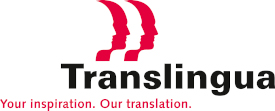We are passionate about translation
If you want to achieve ambitious strategic goals such as growth in new markets or launching new products successfully, good translations are essential. A large number of interfaces automatically arise in large organisations. Complexity arises, for example, when a large number of employees are involved, external specialists are engaged or strict regulatory requirements have to be met. Initiatives featuring aspects like these imply that a translation project is needed. Failure to plan can mean that you will not be able to meet cost, time and quality targets. Here are some of the most important factors to ensure that your project is a success:
Planning and timing
- Is there a deadline? Do you use reverse planning?
- Does it make sense to break the project up into smaller projects with intermediate targets?
- Are there any steps in the process that should be outsourced to external experts (“make or buy”)?
- Which activities can be planned? When can we inform the persons involved?
- If the deadline is tight: what are the advantages and disadvantages of working in parallel?
Process
- In what order do the individual steps needs to be completed?
- How will you manage any changes to the text? Can these changes be traced?
- Which documents need to be edited: working documents or final products such as a brochure, a website or an annual report?
Volume and budgeting
- How much text do you need to have translated?
- What is the estimated cost? Are there any potential savings?
- If you have a small budget: have any texts already been translated? Do you need all of the texts translated into all target languages, or is a leaner approach enough for the first step?
IT programs and formats
- In what format are your source texts? What is your target format? Are these formats suitable for translation and publication?
- For confidential content: is data security ensured across the entire process chain?
- Is the content compatible with your current software such as MS Office or InDesign and with ERP, CRM or CMS systems?
Terminology and corporate language
- Do all the people involved comply with existing terminology specifications, style guides or glossaries?
- Who is translating the content? Are you sure that the content is being properly translated by a specialist?
- Are your translations being edited or proofread? If so, by whom?
- Are you creating a translation memory?
Translingua has a wealth of expertise and can meet even highly complex requirements. We are happy to offer you some insights into translation projects to which we contribute our expertise:
- Multilingual annual reports for publicly listed companies
- Customer and employee magazines
- Course materials and seminars including examination regulations
- Co-production, editing and translation of editorial texts such as customer profiles, product descriptions, tips on excursions, slogans and claims
- Market reports and price forecasts
- Fundraising campaigns via web, apps and mailshots
- Monitoring and revision of product information management systems (PIMs)
- Technical documentation, specifications and contracts in the fields of machine construction, electronics, construction and more
- Compliance templates for international roll-outs in the pharmaceutical and medical devices industry
- Manuals for quality management and declarations in the food manufacturing and retail food sectors
- Assembly instructions for structural and civil engineering
- Manuals for back-office IT applications
- Job descriptions (HR)
- Transcription and translation of audio recordings
- Subtitles for TV series
- Proofreading of academic and scientific essays in the fields of art history, economics, medicine and technology
Translingua guarantees the professional execution of translation projects. Please contact us without obligation to discuss your requirements.
